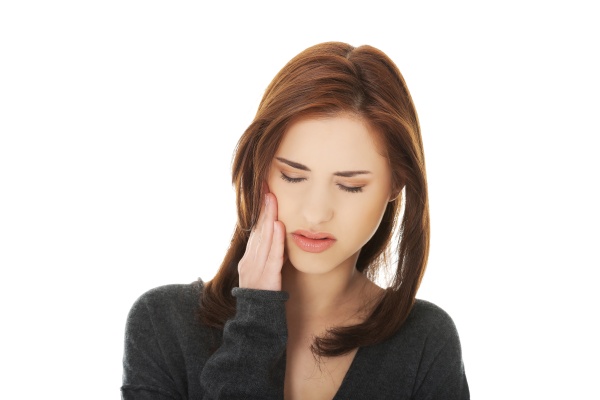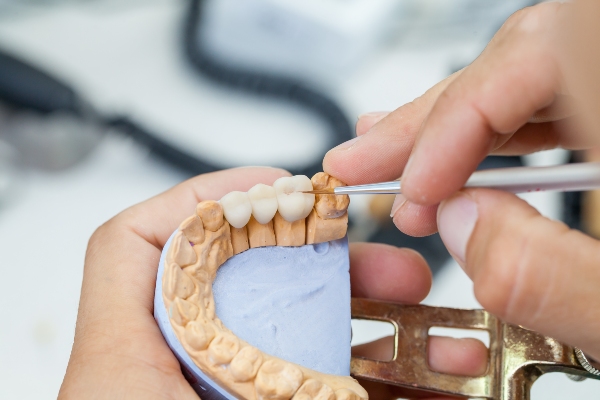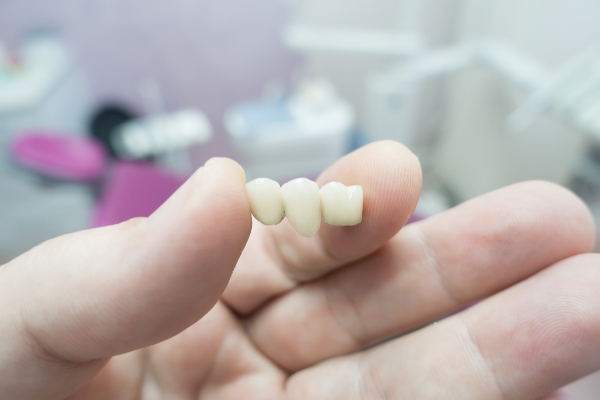Teeth Grinding: How Do I Know if I Am Grinding My Teeth at Night?

Teeth grinding episodes often go unnoticed because they happen at night while you sleep. You will not even realize you are doing it in many cases. If you are a severe teeth grinder, the signs will come in the morning when you have a headache and experience pain and dullness in your face and jaw. Your partner or spouse might also complain about your condition as a sleep disrupter.
However, not all cases are severe, and if you suffer from mild to moderate bruxism, you may find it harder to identify your issue. In cases like these, the symptoms might consist of teeth chipping, filling deterioration and other more subtle signs. You should contact a dental professional who can help you explore solutions.
Signs of nocturnal teeth grinding
Small children are expected to experience sleep bruxism at some point during their development. It is a phase that comes and goes in most cases. However, some adults pick the habit up due to stress, sleep disorders or orthodontic abnormalities. Severe cases often demonstrate visible signs which are noticeable not only to the individual but to their partner or spouse. Mild to moderate cases of sleep bruxism require a better understanding of the condition. These are some of the signs of night bruxism:
Cracked teeth
A cracked or chipped tooth is not always immediately noticeable. A trip to the dentist might reveal that such an incident has occurred. Teeth clenching is one of the most common causes of chipped teeth. Addressing the problem is important because the symptoms can worsen over time. Some patients even experience tooth crown deterioration.
Deteriorating fillings
Teeth fillings serve a purpose but are rendered useless if deteriorated from nocturnal teeth clenching. Much like cracked or chipped teeth, filling failures are not always apparent. For this reason, regular trips to the dentist are recommended for anyone but especially for those who suspect to have night bruxism.
Headaches
Waking up with a headache is not uncommon for anyone, even to those who do not clench their teeth at night. With that said, headaches experienced in alignment with other symptoms are often an indication of sleep bruxism. Those who suffer from headaches, along with the other symptoms presented, can draw a correlation between them. When jaw pain is also present, the problem is referred to as TMJ headache.
Jaw pain
Pain in the jaw is one of the most apparent signs of night bruxism. It typically shows itself in the morning but can last throughout the entire day. Unlike other symptoms of teeth clenching, jaw pain is not subtle. A TMJ headache might accompany this symptom, along with moderate to severe facial discomfort. When bruxism reaches this point, it should be treated by a dental professional.
Reach out to a dentist in your area
You have learned how to identify the signs of night teeth grinding. Chipped teeth and filling deterioration are not easily noticed but can lead to long-term issues. While mild cases might have subtle symptoms, severe cases will cause jaw pain and facial discomfort. Clenching teeth at night can disturb your sleep schedule along with that of your partner. You might even suffer from debilitating headaches in the mornings. Contact a dentist to learn more.
Request an appointment here: https://brimhalldentalgroup.com or call Brimhall Dental Group at (661) 249-1122 for an appointment in our Bakersfield office.
Check out what others are saying about our services on Yelp: Read our Yelp reviews.
Recent Posts
When the smile is missing a tooth or three, a general dentist may recommend dental bridges to restore its appearance and functionality. Even a single missing tooth can cause difficulties with eating and speaking. It also leaves room for the remaining teeth to shift, leading to a misaligned bite. While traditional and implant-supported dental bridges…
Curious about dental bridges? Read on to learn more about this type of restoration. The aftermath of tooth loss can be a struggle. The loss puts extra pressure on the rest of the teeth and chewing becomes less effective. Your speech gets affected too. Fortunately, dental bridges lay out a path to restoring the look…
A denture repair should be your top priority when your denture breaks or becomes damaged. This prosthetic device fills out all the empty spaces in your mouth. It is crucial to care for your denture since the missing teeth can compromise your eating habits, speech, and appearance. This dental device is durable enough to handle…
Missing teeth can negatively impact your smile's appearance and health. However, there are treatments out there that can help. Dental bridges are a common dental restoration that can improve oral health and enhance your smile. A dental bridge can be an effective solution if you have lost a tooth due to decay, injury, or other…


